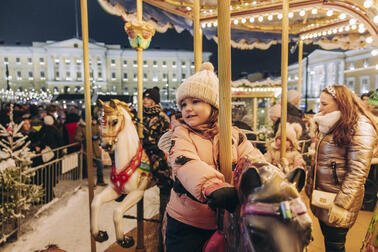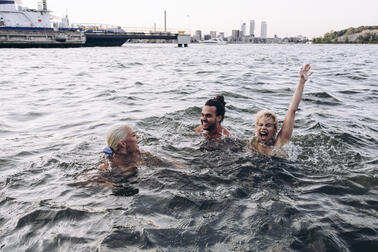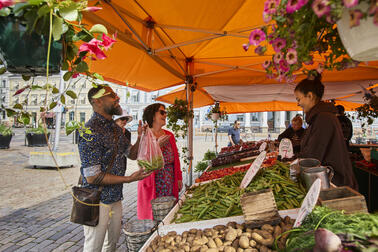There are several reasons for this success, and this recognition would not be possible without active cooperation with companies.
Helsinki is committed to sustainability in all its operations, which also applies to the events and tourism in the City.
The promotion of sustainable tourism and sustainable events has not remained an empty promise, which is also proven by the international recognitions received.
Out of all the sustainability acknowledgments received by Helsinki, Special Planning Officer Jukka Punamäki highlights the Global Destination Sustainability Index, which decrees Helsinki as the most sustainable travel destination in the world.
Helsinki was also the first metropolis in the world to receive the Global Destinations GSTC certification.
“This certificate is likely the strictest in the whole world. We are a definite forerunner among metropolises.”
Punamäki says that there is no single specific reason for why Helsinki was ranked at the top.
“We are good in sustainability, in all aspects of it. You have to be if you want to be the best in the world.”
Vegetarian food and efficient waste management
Senior Producer Sanjaana Gavalas from the Helsinki Events Foundation shares an example on how responsibility and the work for sustainability are reflected in the events held by the Foundation.
“We only serve fish and vegetarian meal options for our audiences, performers and event personnel. Meat, such as game, is only sold in small quantities at the Helsinki Christmas Market.”
The Helsinki Events Foundation produces the City’s large public events, such as the Helsinki Festival, Lux Helsinki, Helsinki Day, Helsinki’s New Year’s Eve celebration, Helsinki Baltic Herring Market and Helsinki Christmas Market.
Gavalas continues: “The carbon footprint of waste at the Huvila venue of the Helsinki Festival was successfully and significantly reduced when we were able to conduct nearly all sludge from the portable toilets to the City’s own sewer network.”
The venue’s lighting is also energy-efficient, and only fossil-free energy is ordered for the events.
Event furniture is leased. Fixtures and furniture owned by the foundation, such as those of Huvila, have been designed to be used for multiple years. They are also utilised in the foundation’s other events.
“On the production side, we do everything we can to ensure that the visitors will have as sustainable an event experience as possible, whether they realise it themselves or not,” Gavalas states.
She is pleased that sustainability is not a separate aspect of event production, but rather something that is intertwined in it throughout the process. This is only possible because the foundation’s whole personnel is committed to sustainability. Sustainable actions are also required from cooperation partners.
We are good in sustainability, in all aspects of it. You have to be if you want to be the best in the world.





